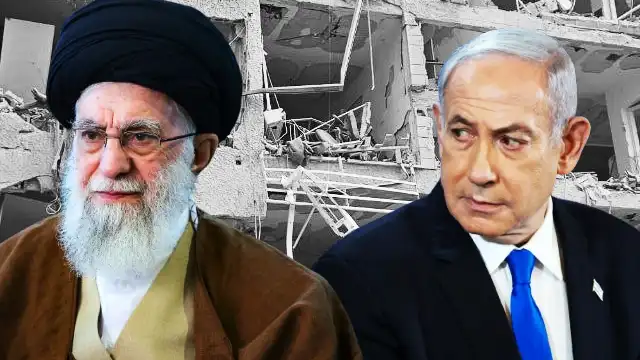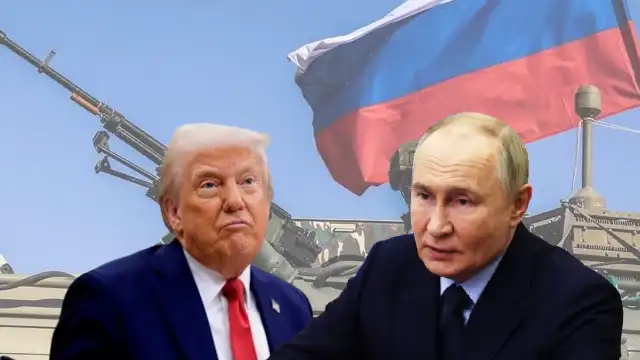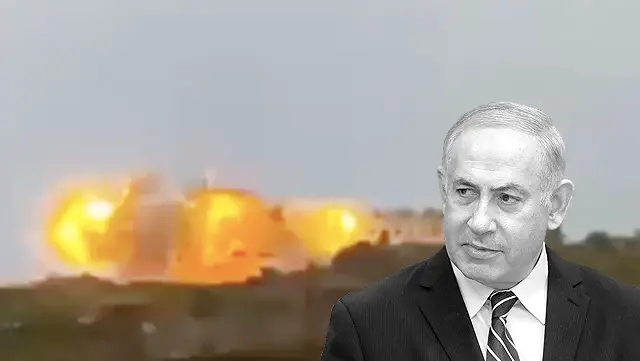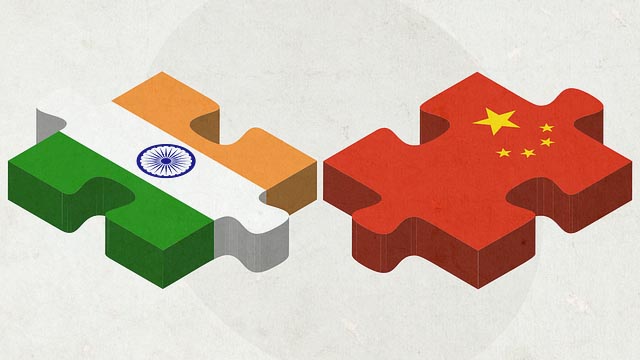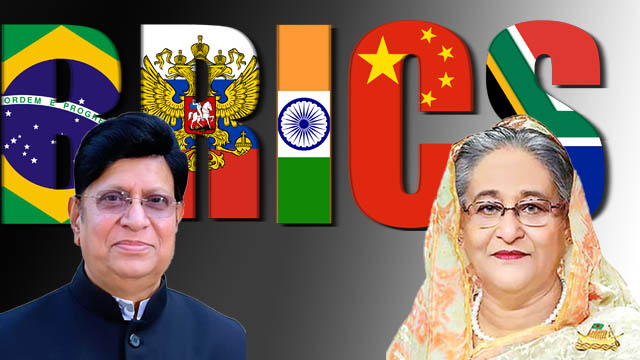Although for over a week now the US has brokered a ceasefire between Iran and Israel through Donald Trump’s backchannel diplomacy, which he is (in)famous for using to restore the status quo after using disruptive rhetoric to rile up his adversaries, peace in West Asia still seems elusive. However, the fragile ceasefire between Iran and Israel has brought out an equation that not only the Persians but also the Arab people had been awaiting for 58 years.
The ceasefire between Iran and Israel has a few new dimensions.
What’s new in the ceasefire between Iran and Israel?
It’s the first of its kind of a ceasefire sought by Israel, especially after the much-hyped American bombardment targeting Iran’s nuclear facilities failed to deliver any results and Tehran retaliated, targeting US military bases in the region, across Washington’s satellite states.
This ceasefire between Iran and Israel, despite being fragile, has brought about some significant shifts in the West Asian power balance.
On the one hand, Iran has established itself as a regional power that can hit deep inside Israel, and on the other, the US has shown its reluctance to get dragged into a long-term Middle East conflict, which won’t directly benefit it immediately.
Mr Trump’s actions, especially after he secured a trade deal with China, on terms set by the Chinese, through back-channel negotiations in the UK, showed that the US, like its involvement in Yemen, will limit its actions in the region to optics creation so that its hegemony is retained while avoiding any long-term conflict.
This has significantly weakened Israel’s position, as it believed that the collective West would plunge into a conflict with Iran as soon as Tehran attacks Tel Aviv.
However, that didn’t happen.
Instead, the massive anti-Israel public sentiments following its 20-month-long aggression in Gaza, where it has killed over 56,000 civilians, have made it inconvenient for the West’s top countries to actively support Tel Aviv, except for words.
Thus, the G-7 Summit in Canada stood by Israel, vehemently opposing Iran’s right to protect itself.
Yet, the G-7 countries, sans the compromised airstrikes by the US, didn’t strike Iran or even think of troubling it, fearing the closure of the Strait of Hormuz.
Israel loses halo of invincibility
Iran’s missile strikes targeting Tel Aviv, Haifa, and other parts of Israel, which forced millions of settlers to rush to bomb shelters, and damaged a significant part of these cities, including crucial Mossad offices, military centres, government offices and even residences of Israeli militarist civilians, shattered the myth around Israel’s invincibility.
Iranian missile strikes on Tel Aviv not only destroyed the halo around the much hyped “Iron Dome” air defence system, but also exposed Israeli vulnerabilities, especially financial and logistical constraints to carry forward a long-term battle.
Israel had honed its military skills fighting irregular militias funded and supported by Iran, Qatar and other powers.
It didn’t fight a war with a regular armed force in over 50 years.
This is where Iran became a game-changer.
It not only exposed Israel’s weakness while facing a regular army, but also gave the Arabs and Persians a feeling of joy by avenging the ignominious defeat of the united Arab forces of Egypt, Jordan and Syria against Israel in the 1967 Six-Day War.
That, too, was in the month of June, coincidentally.
The lost war
In the June 1967 battle, Israeli forces used the element of surprise to defeat a larger Arab army by destroying the air capabilities of Egypt.
It not only defeated the forces of the three countries but also expanded its occupied territories to almost three times its original size during the foundation of the Zionist state in 1948.
Israel forcibly snatched crucial Palestinian towns, including the West Bank region and Jerusalem, from Jordan; it snatched Gaza and Sinai from Egypt and the Golan Heights from Syria.
The disarrayed Arabs, who had a bigger army than the Israelis, had to seek a ceasefire through the US and the Soviet Union at that point.
Although Israel signed the ceasefire, it didn’t return much of the territories, including the occupied Palestinian and Syrian lands.
The defeat traumatised the collective conscience of the Arab people.
They wanted to avenge it, but their defeat in the Arab-Israel war in the 1970s sealed their fate.
Most Arabs started believing that there is no way someone can force Israel to retreat through a direct battle, as the US will fully back the Zionist state using its overwhelming military superiority.
Yet, Iran did it and shattered the myth forever.
Iran delivers
Unlike the Arabs, many of whom took the path of protracted guerrilla war against the occupation, the Iranians didn’t plead for a ceasefire with Israel, but it came from Tel Aviv as Prime Minister Benjamin Netanyahu feared his popularity dipping further following the optics of excessive damages caused by Iranian strikes.
Although Iranian strikes lacked precision and failed to eliminate key political and military personnel, it managed to destroy much of Israel’s real estate to create optics that weakened Israeli morale.
Despite having a press censorship on reporting the real damages suffered by Israel, Mr Netanyahu’s government couldn’t conceal the facts, which were leaked on social media by the settlers.
This showed Israel in a weakened state, destroying years of propaganda to build the perception of an invincible state.
This was certainly something that the Arab masses, despite their rulers’ collaboration with the West, had been wishing for.
Iran’s strikes on Israel, perched Tehran’s Shiite leadership at a great height among even the Arab people, who are largely Sunnis.
The Iranian actions have narrowed the wider sectarian fissures within the Muslim world, aggravated by pro-Western Wahhabi propaganda by the Saudi Arabian monarchy-endorsed clergy since the 1970s.
Saudi Arabia forging a close strategic alliance with Iran, despite the American sanctions, has shifted much of West Asia’s geopolitical sands and prevented a larger regional hostility involving the monarchy and its former arch rival Islamic Republic.
Moreover, the Iran-Israel conflict has also shown the overall geopolitical alignments that can take place in the case of a major conflict involving the two powers.
Geopolitical alignments shown by the Iran-Israel conflict
Firstly, the US and the collective West will have no greater interest in protecting Israel and fighting a war on its behalf unless such a conflict can drag the Chinese and the Russians, two of Iran’s major allies, into the war, which won’t be the case.
Both countries showed that despite supporting Iran and forging closer strategic ties, including military ties, they will not be in any binding defence pact with Tehran.
Yet they didn’t balance but steadfastly stood with Iran and condemned Israeli aggression.
For China, the compulsion is highly economical, which drives the People’s Republic’s international relations.
According to the Chinese Belt and Road Portal, Israeli imports from China reached a record high of $13.53bn in 2024, a 19.8% increase from the $11.29bn in 2023, despite China’s criticism of the Gaza aggression.
In December last year, Israeli imports from China nearly doubled year-on-year, reaching $2bn, up from $1.12bn in December 2023.
China mainly exports its computer equipment, electric cars and imports crucial integrated circuits and fertilisers from Israel.
At the same time, China is highly dependent on West Asia for its growing carbon fuel requirement despite a strategic shift towards renewable energy.
For China, Iran is a bigger and crucial trading partner than Israel.
According to reports, China buys over 90% of Iranian oil, which can’t be sold elsewhere due to unilateral US sanctions.
Reuters reports China has imported 1.38m barrels per day (bpd) of Iranian oil, citing Kpler data, from January to June this year.
Last year, China purchased an average of 1.48m bpd of Iranian oil, which was about 14.6% of its total fuel imports.
In the conflict-ridden June, Chinese imports of Iranian crude oil surged to 1.8m bpd.
Iranian officials say China was Iran’s top non-oil export destination from March to May 2025, importing $2.43bn of goods from Iran.
Exporting commodities valued at $2.2bn to Iran, China was Iran’s second source of non-oil imports in the said two months.
The non-oil trade between Iran and China stood at $34.1bn in the past Iranian calendar year, which ended on March 20th, 2025.
According to reports, China was the first destination of Iranian products in the past year by importing non-oil goods worth $14.8bn from Iran, and the second source for Iranian imports by exporting non-oil commodities valued at $19.3bn.
Russia’s bilateral relations with Israel and Iran are critical to Moscow, especially its strategic ties with Tehran.
In May, Iran’s Parliament approved a strategic partnership deal with Moscow, which was signed by Iranian President Dr Massoud Pezeshkian and his Russian counterpart, Vladimir Putin, on January 17th.
The treaty aims at enhancing bilateral relations amid the challenges both countries face due to the West’s sanctions.
Although the treaty doesn’t have a mutual defence pact, Iran and Russia have agreed to work against common military threats.
Russia’s bilateral trade with Iran stands at $5bn, while the new deal is expected to increase it to $6bn.
Iran will also eventually lower tariffs under the new deal on Russian goods from the current 16.7% to 5.2%, experts predict.
Russia’s bilateral trade volume with Israel is less than half that of its trade with Iran.
While Russian imports from Israel fell from $794m in 2021 to $470m in 2024, its exports have increased manifold, from $392m in 2022 to $2.37bn in 2024.
Although Russia’s bilateral trade with Israel is less in volume compared to Iran, it is one where Moscow enjoys a comfortable surplus, and it’s also not the only consideration for Russia to fully side with Iran during a conflict.
According to Mr Putin, Russia has to worry about Israel, as over two million Russian people live there and it’s “almost a Russian-speaking country”.
With the Soviet Union endorsing the partition of the historic Palestine in 1948 for the creation of Israel, Russia has enjoyed strong ties with the Zionist entity throughout the last eight decades, except for over 20 years from the Six-Day War, when the Soviet Union snapped ties with Israel.
It becomes hard for Mr Putin to take any new approach in the Arab-Israel or Iran-Israel conflict, rather than what his Soviet predecessors had done, engage with the anti-Israel forces and mediate between the two sides.
Experts believe Russia can’t support any of its allies in West Asia militarily, as it’s hard for Moscow to fight on two fronts when it’s focusing on Ukraine.
Moreover, despite sharing strong bonds with Iran, Russia is also wary of Tehran’s long-term ambitions.
A nuclear power Iran would walk independently of Russia’s whims, like China in the 1960s and 1970s.
This is something Moscow is also worried about.
Moreover, any disruption in Iranian oil supply to its clients, who buy the sanctioned oil, would mean more markets for Russia’s fuel.
These complex issues keep both the Chinese and Russians out of the battlefield when it comes to Iran.
Nevertheless, the duo, along with other Shanghai Cooperation Organization (SCO) member countries, sans India, have ensured the whole bloc stands with Iran, opposes Israel diplomatically and helps Tehran boost its security.
Still, neither China nor Russia would join a war in favour of Iran, but they will use their diplomatic prowess to force Israel to negotiate.
The SCO and other multipolar blocks, including the BRICS, have stood behind Iran’s position on the conflict.
For the US and the collective West, without a major war dragging Russia to the battlefield, which eventually means forcing Moscow to fight on two different fronts, to weaken its position in the Ukraine conflict, would have no long-term geopolitical significance.
Thus, while Israel had high hopes regarding the US and the West joining it against Iran, at the very beginning of the conflict, the opposite happened.
Moreover, Tehran’s attacks on American bases in the Middle East showed Washington that it can’t remain immune in the long term by meddling on behalf of Israel.
The ceasefire between Iran and Israel has also shown that though Israel had a strategic advantage in terms of breaching Iranian national security using Mossad agents to launch targeted attacks, Iran has managed to wean the Global South’s support in its favour and successfully isolated Israel in the world.
For Israel, Mr Netanyahu’s continuous aggression in Gaza has become a nemesis.
The Zionist entity now faces a major financial crisis as it needs to increase its defence budget. At the same time, the American public sentiment can grow stronger against providing aid to Israel.
This will create a stalemate in the long run in the pro-Israel camp, weakening Israel’s capacity to retaliate against Iran or other foes.
Until Mr Netanyahu fixes his problems and regains the strength needed to strike Tehran, the ceasefire between Iran and Israel will remain in force, although it will hang by a thread.
Join our channels on Telegram and WhatsApp to receive geopolitical updates, videos and more.

